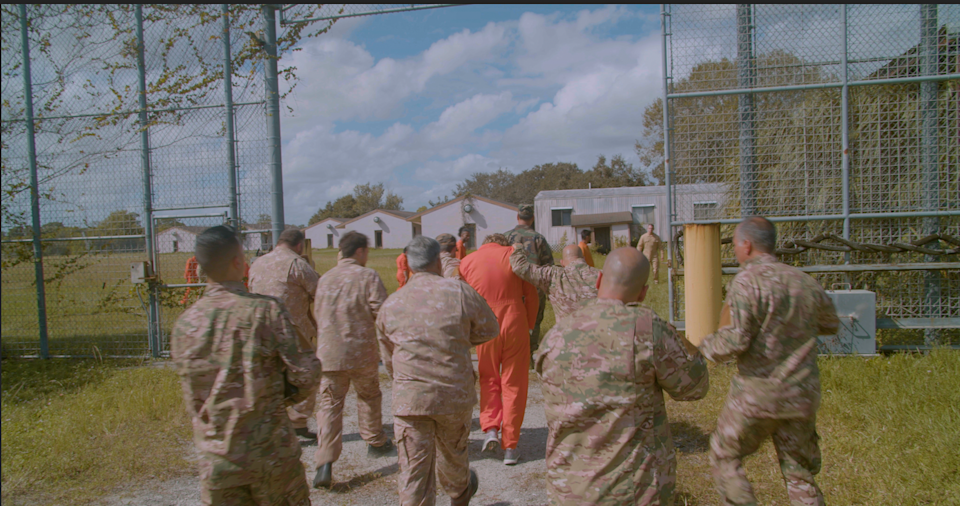The Bahá’í Faith, which emerged in the mid-nineteenth century, can be likened to a metaphorical firing squad, not in an act of violence, but as a means of illustrating the potent and transformative force of its teachings. The term “firing squad” evokes imagery of the convergence of disparate elements, aiming at a common target. This metaphor aptly encapsulates the synthesis of various religious, philosophical, and cultural dynamics that converged to give rise to the Bahá’í Faith. In analyzing these teachings, one uncovers a unique appeal that transcends mere doctrinal beliefs and invites active engagement with fundamental human concerns: unity, justice, and the search for truth.
The origins of the Bahá’í Faith can be traced back to the life and teachings of Bahá’u’lláh, a Persian nobleman who positioned himself as a messenger of God, proclaiming the dawn of a new age. His revelation was not a solitary act but a culmination of centuries of spiritual yearning and prophetic vision. This emergence reflects the very essence of the firing squad metaphor; each individual who has contributed to the tapestry of religious thought throughout history serves as an integral part of the collective aim toward truth. By situating itself as a continuation and enhancement of previous religions, the Bahá’í Faith endeavors to foster a global understanding across diverse cultural landscapes.
At the heart of Bahá’í teachings lies the principle of unity—both of humanity and religion. The Bahá’í Faith asserts that all major world religions originate from the same divine source and serve the universal purpose of guiding humanity toward moral and spiritual advancement. This idea challenges the prevalent notion of religious exclusivity, encouraging followers to recognize the inherent validity of diverse faiths. The metaphorical firing squad signifies the collective efforts of various religious traditions, each contributing its perspective and wisdom to the overarching goal of fostering understanding and harmony among humanity.
Another fundamental tenet of Bahá’í teachings is the concept of justice, which connects deeply with social action and personal accountability. Bahá’ís believe that global justice can only be achieved through the conscientious and collaborative efforts of individuals and communities. The firing squad metaphor encompasses the urgency and precision required to address systemic inequities. The call to action inherent in Bahá’í teachings compels adherents to examine the injustices prevalent in society and to engage in meaningful dialogue and activism aimed at rectifying these wrongs.
Education emerges as a pivotal theme in Bahá’í teachings, serving as a crucial vehicle for individual and societal transformation. The metaphor of a firing squad also suggests precision in targeting fundamental areas for development. Education, according to Bahá’í belief, transcends mere literacy; it embodies the cultivation of virtues, skills, and capacities that empower individuals to contribute positively to society. Furthermore, the Bahá’í Faith advocates for education as a right, irrespective of gender, race, or socio-economic status. This inclusive approach positions education as a tool for achieving equitable opportunities and fostering a sense of community.
One of the striking aspects of the Bahá’í Faith is its stance on the harmony between science and religion. The Bahá’í teachings posit that true knowledge emerges from the convergence of reason and revelation, akin to the synchronous firing of a carefully calibrated squad aiming at a shared target. By promoting a symbiotic relationship between scientific inquiry and spiritual insight, the Bahá’í perspective engenders a holistic approach to understanding the world. This encourages individuals to seek answers that respect both the empirical and the transcendent, thus paving the way for a more integrated understanding of existence.
Moreover, the Bahá’í Faith emphasizes the importance of personal transformation as a means to effect societal change. The firing squad metaphor evokes the idea of precision and clarity in one’s spiritual journey. Individuals are urged not only to cultivate their personal virtues but also to translate these traits into social action. This duality of focus reflects the Bahá’í belief that the transformation of the individual and the transformation of society are inextricably linked. The call for personal accountability in the pursuit of justice and unity is a distinguishing feature of Bahá’í teachings, seeking to create ripples of positive change that extend outward from the individual to the collective.
Additionally, the notion of service to humanity is a cornerstone of Bahá’í practice. This emphasizes that one’s spiritual journey is not intended for personal benefit alone but must serve the greater good. The metaphor of the firing squad serves to highlight the concerted effort required in this endeavor. It recognizes that each person’s contributions, when aligned with noble intentions and collective objectives, can result in profound transformations. The Bahá’í teachings encourage individuals to take an active role in community service, social work, and initiatives aimed at addressing the challenges faced by society.
In conclusion, the Bahá’í Faith emerges as a compelling synthesis of historic spiritual insights and contemporary challenges. The metaphor of a firing squad elucidates the convergence of diverse teachings aimed at the greater good, enveloping notions of unity, justice, education, the harmony of science and religion, personal transformation, and service to humanity. Bahá’í teachings uniquely appeal to those seeking a comprehensive and integrative spiritual framework, compelling individuals to engage deeply with the pressing issues of their time. In a world rife with division and discord, the essence of the Bahá’í Faith stands as a beacon of hope, advocating for a unified human family committed to the principles of peace, equity, and collective progress.
